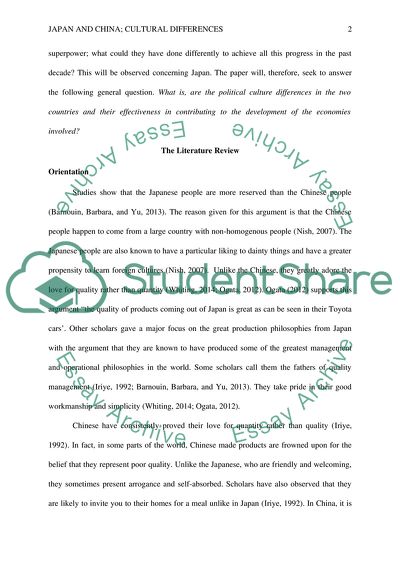Cite this document
(“Japan and China: Political and Culture Differences Research Paper”, n.d.)
Japan and China: Political and Culture Differences Research Paper. Retrieved from https://studentshare.org/social-science/1701295-japan-and-china-political-and-culture-differences
Japan and China: Political and Culture Differences Research Paper. Retrieved from https://studentshare.org/social-science/1701295-japan-and-china-political-and-culture-differences
(Japan and China: Political and Culture Differences Research Paper)
Japan and China: Political and Culture Differences Research Paper. https://studentshare.org/social-science/1701295-japan-and-china-political-and-culture-differences.
Japan and China: Political and Culture Differences Research Paper. https://studentshare.org/social-science/1701295-japan-and-china-political-and-culture-differences.
“Japan and China: Political and Culture Differences Research Paper”, n.d. https://studentshare.org/social-science/1701295-japan-and-china-political-and-culture-differences.


